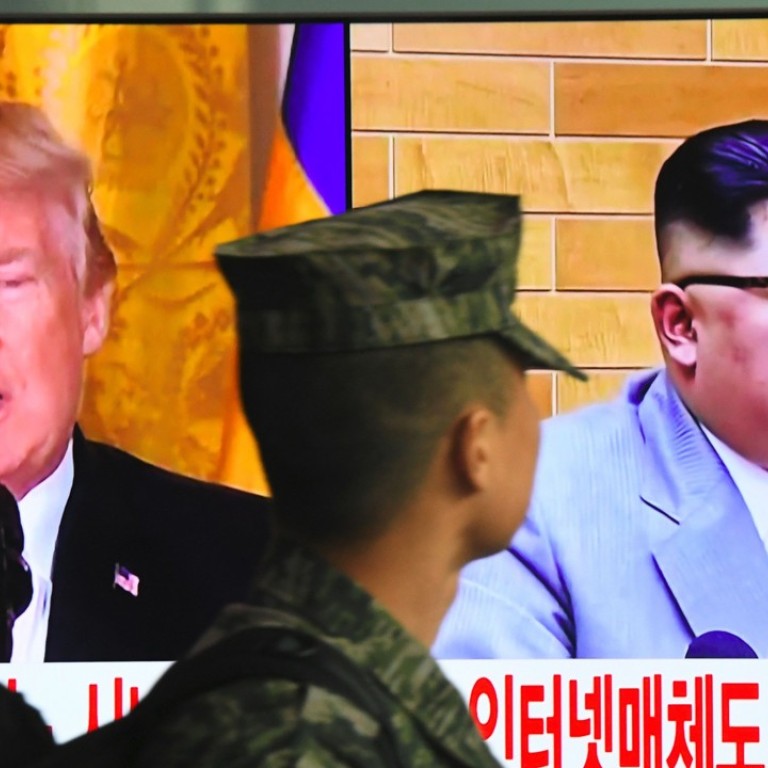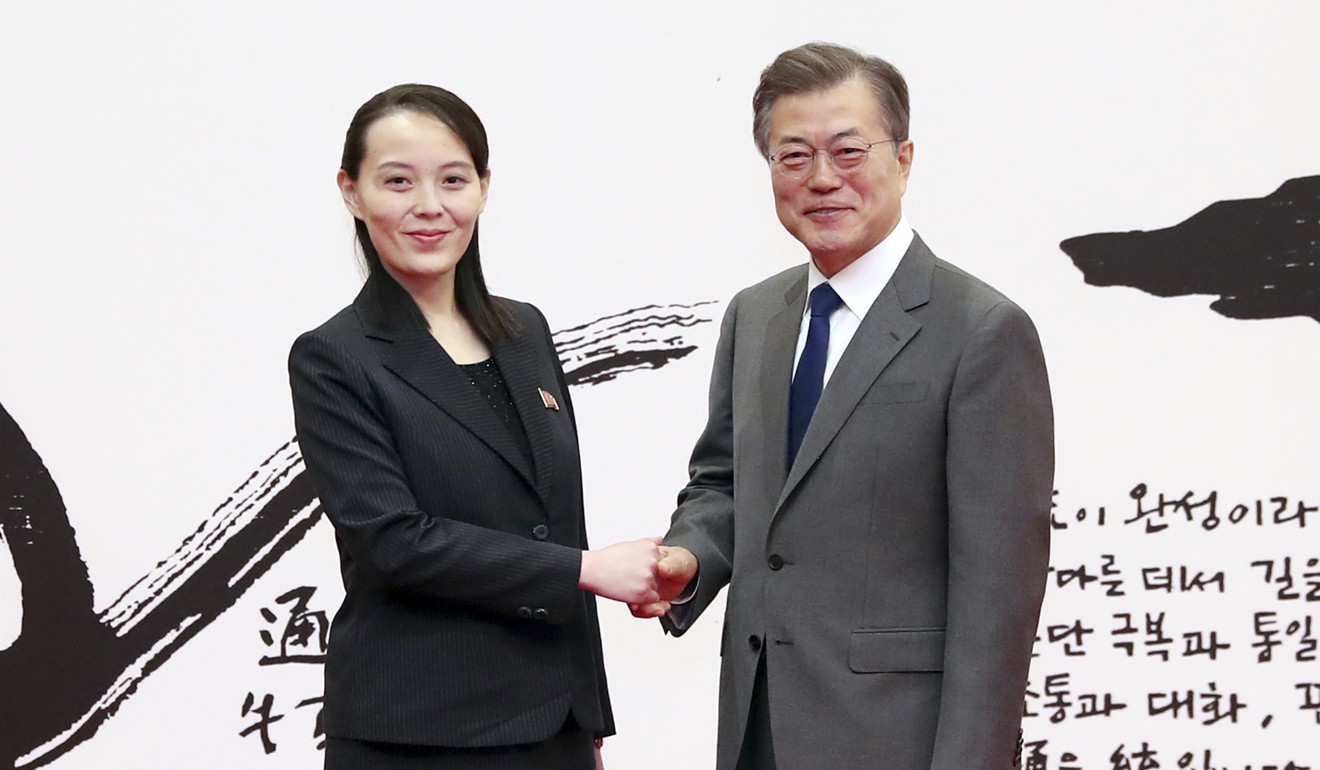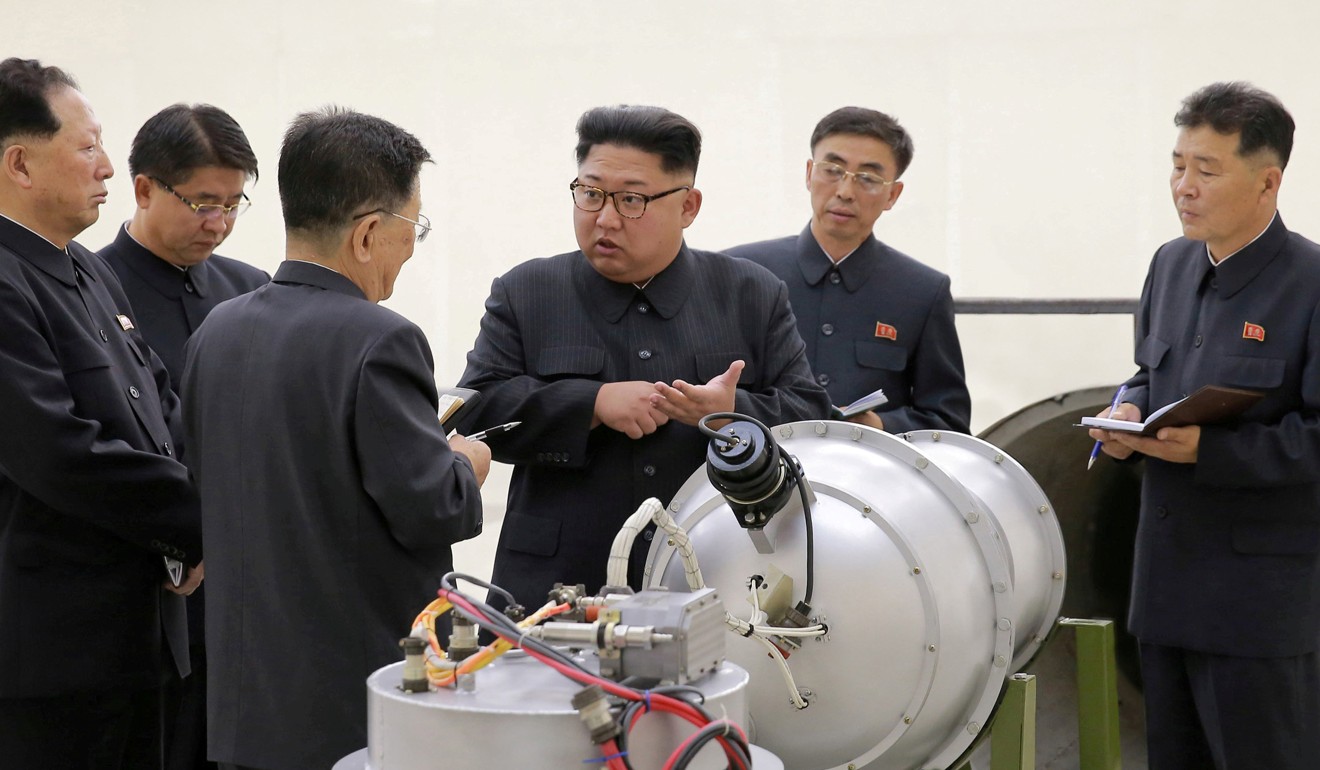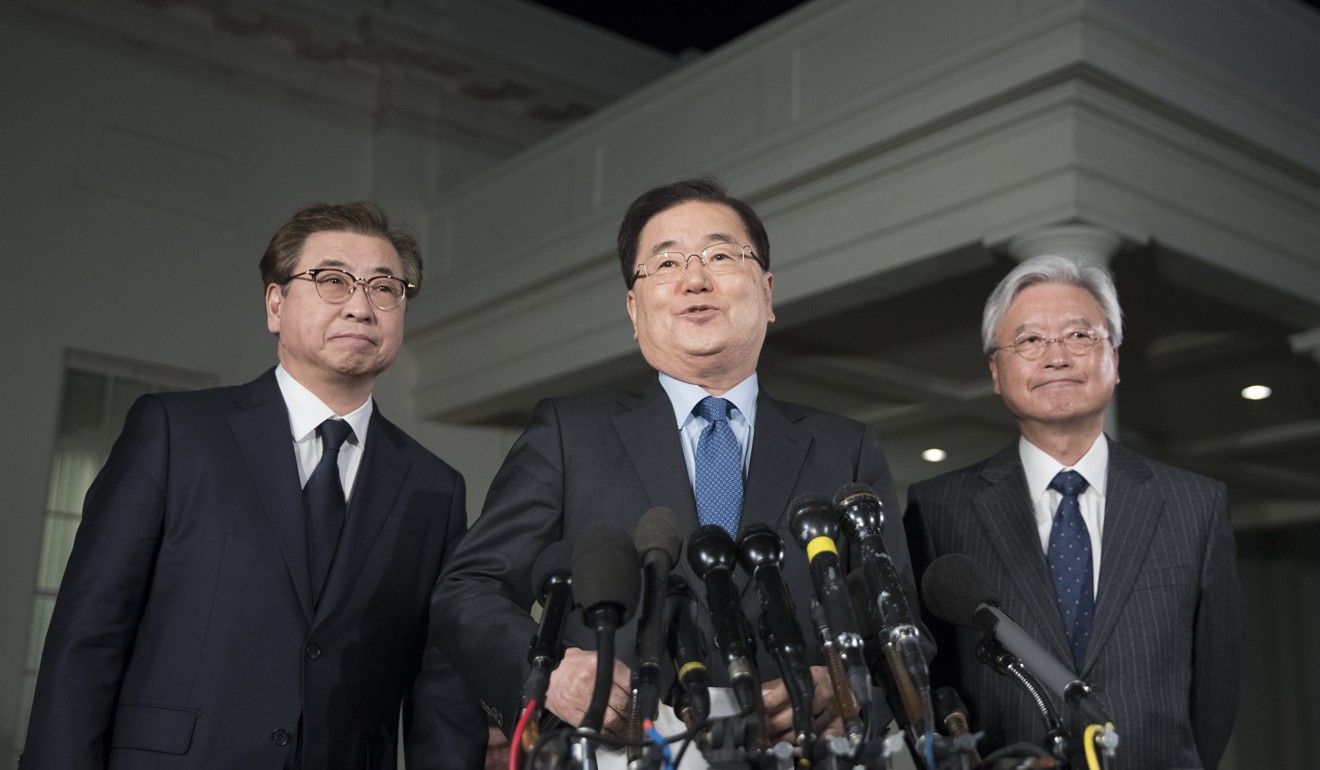
Trump is meeting Kim, so what? We may be headed for nuclear war
The line between peace and a nuclear war in northeast Asia remains as thin as ever. The only (near) certainty is that North Korea will not make it through this century
The answer: most definitely.
This logic could indeed be couched as ‘the 60-year law’ – to wit, that modern states last an average of about 60 years, after which they disappear or transform unrecognisably through war or constitutional collapse, or both.
According to this law, North Korea, which has now been in existence for 70 years, is past due for an existential crisis. And to be fair, so is the United States.

It is worth recalling that no one in the old East Germany, which lasted but 41 years, expected that country to collapse when it did, or for the reunification with West Germany – also lasting 41 years, for all practical intents and purposes – to have taken place so precipitously. And the collapse of the Soviet Union, after 70 years, might have been persuasively explained in Yegor Gaidar’s excellent monograph, Death of an Empire, but it occurred much faster and, for the most part, more bloodlessly than anyone, Soviet or other, could have predicted.
With Trump to meet Kim, the real Korean games have only just begun
So it can be said with near certainty that North Korea will not make it through this century. What will its end or its fundamental transformation look like? And when exactly will this occur? Will it be caused by a terrible war with the US, South Korea and other allied countries? Will there be some species of internal rebellion or putsch in Pyongyang? Or will there be a sudden, whiplash-like push for reunification by the North Korean leadership itself – the final consequence of ferocious American military threats, Chinese pressure and the absence of attractive options for succession?

Clearly, no one outside North Korea yet knows the answers, although Kim Jong-un and his coterie of advisers may have already made certain determinations in this regard. But whatever their decisions, ‘the 60-year law’ is always in effect: while large federal countries like the US, Canada and Australia may continue to exist in small multiples of this average over the course of this century, North Korea should, in relative terms, not long endure.
Both Kim and Trump govern not only by caprice, but also by theatre. The former allows them to move rapidly along one behavioural vector or another (or between vectors), while the latter means they will often move for aesthetic effect instead of according to strict policy objectives – and with great disproportionality.
Moon struck gold with the Winter Olympics, but can he medal on the economy?
To reckon, then, with what the Americans perceive as an unacceptable military threat from the North, and to distract from the ever-growing crisis of Trump’s own presidency, the US leader may indeed soon launch a pre-emptive nuclear war – combining both caprice and theatre.
Meanwhile, Kim may be interested in pushing for unification with similar velocity and intensity. He has been using the word “unification” more frequently since the lead up to the Winter Olympics, and the possibility of him having true intent should not be discounted.
Trump could also capriciously match this push for unification with his own prodigious energy, and thereby potentially earn himself and his Korean counterparts a legitimate Nobel Peace Prize – even if the honour may not be as compelling a domestic consolidation action as war in the context of the growing political storm in Washington.
Of course, there is a third possible scenario of continuing the status quo. North Korea may simply keep bobbing and weaving, tactically and inventively, testing missiles with varying degrees of provocation, and progressing its intercontinental nuclear delivery capabilities – all the while locking the US and South Korea in protracted negotiations.

This scenario could prevail in the short-term if Trump is abruptly removed from office in the coming months or if the US should become suddenly distracted by eruptions in one of the two other major conflict theatres in the world – first, the Russia-Ukraine-West conflict, or second, the several existing and potential wars in the Middle East. Any war in northeast Asia, in turn, would only serve to exacerbate these other major conflict zones.
Still, the status quo scenario pushes up quite brutally against the said 60-year rule, and it would have to survive the conspicuous caprices of the leaders of the day. And as such, it too cannot hold long.
In all this, what is eminently clear is that the scenario that is near impossible is full “denuclearisation” of the peninsula – that is, in the absence of reunification. Kim may be capricious and theatrical, but he is neither crazy nor suicidal. And in the context of ever-diminishing strategic trust among many of the world’s leading countries, why would he cede his weapons? He reads his opposite number in Washington well, and knows that the day after denuclearisation could well signal the start of a march on Pyongyang.
In short, if the US is absolute in its insistence on a denuclearised Korean peninsula, and if Trump’s caprice does not lend itself to the reunification scenario, then we may well be headed for nuclear war. Even if Pyongyang and Seoul soon express the wish to unify, and begin the political work to that end, the American predilection for military theatre may still rule the day. ■
Irvin Studin is Editor-in-Chief and Publisher of Global Brief Magazine, and President of the Institute for 21st Century Questions (Toronto)

